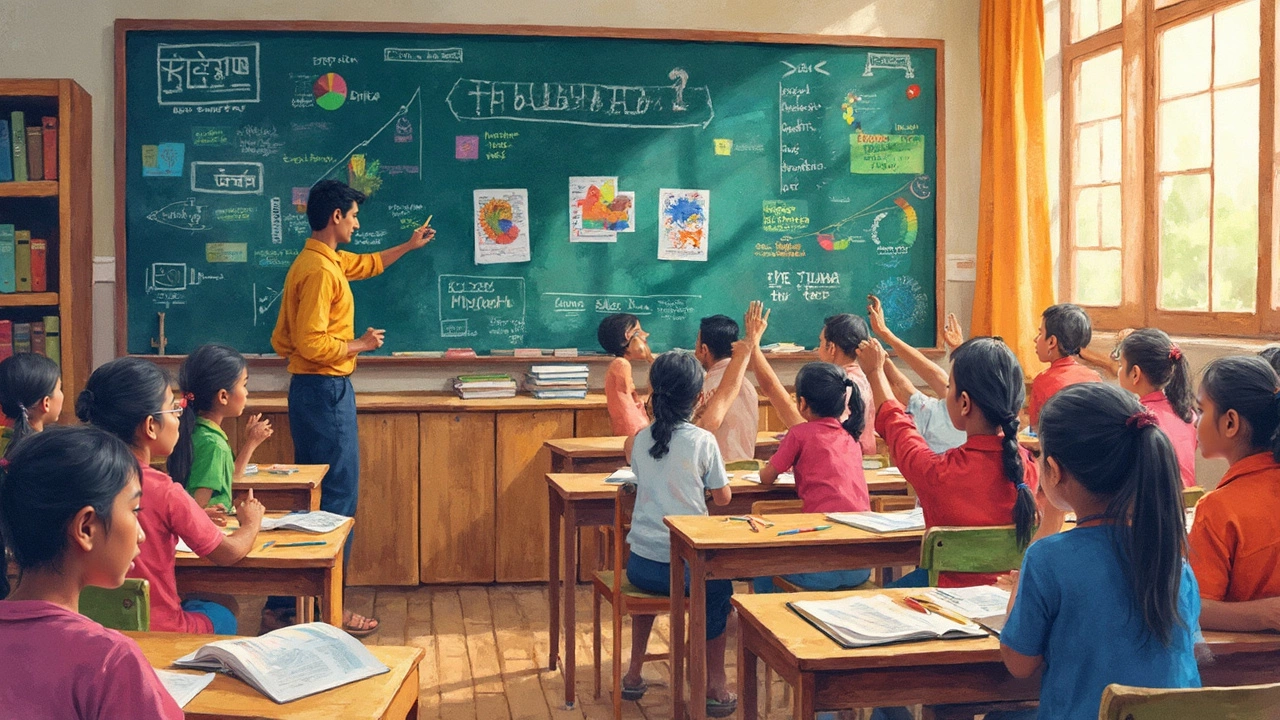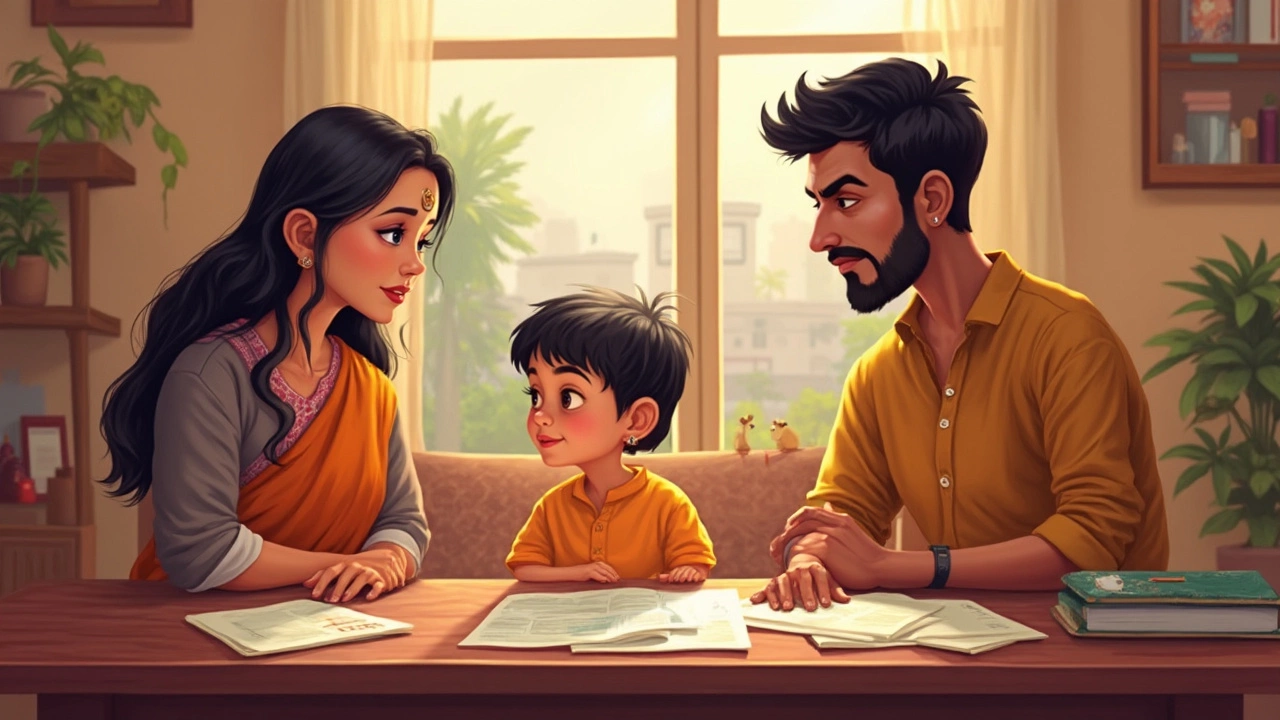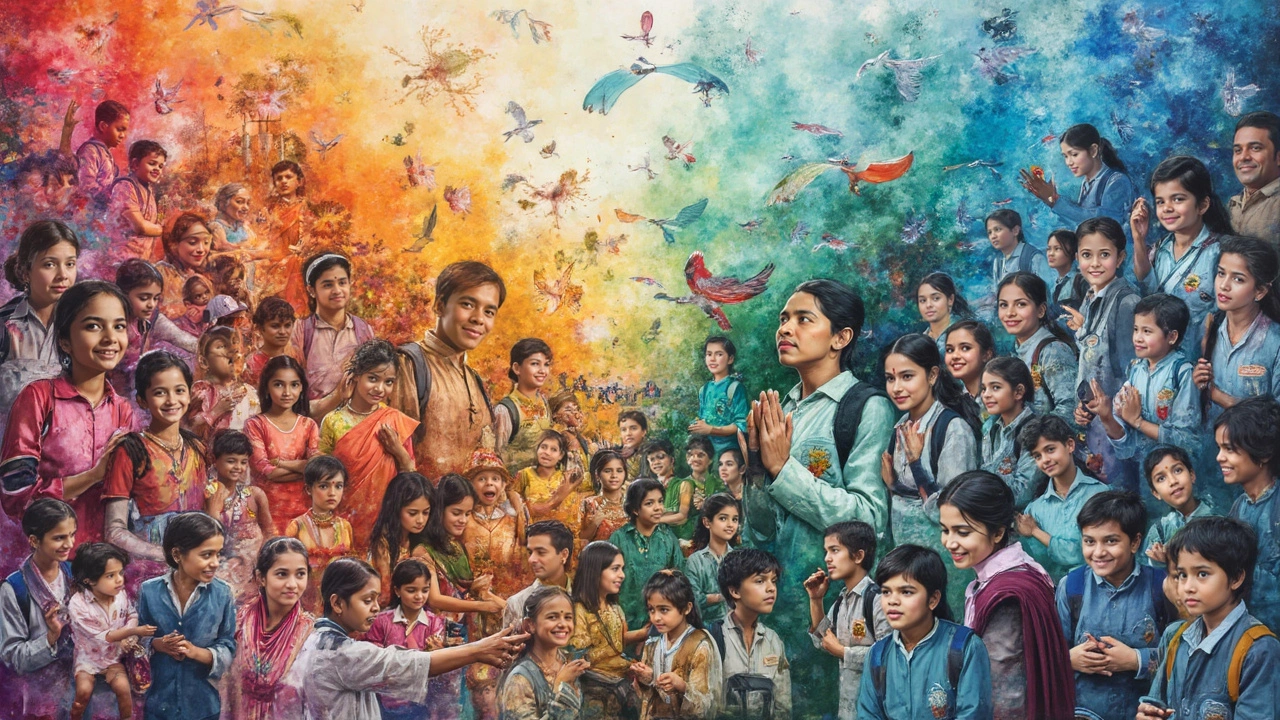
Choosing the Best Syllabus for Your Child: CBSE Insights
Ever found yourself standing in front of a mountain of school pamphlets, wondering which syllabus is best for your child? You’re not alone. Picking the right educational path can feel like navigating a labyrinth. Among the popular choices, the CBSE (Central Board of Secondary Education) syllabus stands out for many. But is it the best fit for your child?
CBSE is known for its balanced approach, combining academic rigor with holistic development. That sounds great, right? What sets CBSE apart is not just the subjects it covers but how they're taught. Imagine a curriculum that promotes critical thinking and problem-solving from day one!
Let’s unpack some benefits you might find intriguing. CBSE offers a structured syllabus that's globally recognized, which might just open doors for your child on an international level. Perfect if you’re considering opportunities beyond borders.
Thinking practically, CBSE exams often focus on MCQs and clear solutions, reducing stress and building confidence. Isn't that what we all want for our kids? The consistent format also means fewer surprises during exams, helping children focus on learning rather than cramming.
- Understanding the CBSE Syllabus
- Benefits of the CBSE Curriculum
- Comparing With Other Syllabuses
- Tips for Parents
- Future Opportunities with CBSE
Understanding the CBSE Syllabus
The CBSE syllabus has a reputation for being structured and comprehensive. It’s like having the best playlist that keeps evolving with new hits. But with textbooks!
CBSE covers core subjects including Mathematics, Science, and English along with regional languages and electives like music or art. What’s interesting? Every concept gets built upon year after year. Imagine those good old LEGO blocks growing stronger and bigger!
Core Subjects and Framework
Catering to grades 1 through 12, the syllabus is designed to build a strong foundation. Primary classes focus on basic reading, writing, and arithmetic. Sounds simple, right? Yet this sets the stage for more advanced topics like algebra and physics in higher grades.
The subjects here aren’t just boxes to tick. CBSE turns learning into a journey where each chapter connects to the next. It's like binge-watching your favorite series!
Assessment Patterns
CBSE exams are all about fairness and clarity. Most subjects include multiple-choice questions, detailed answers, and practical exams where applicable. This method not only helps reduce exam anxiety but also encourages children to delve deeper into topics rather than just scratch the surface.
Flexibility Across India
You know what’s the best part? CBSE is recognized in almost every corner of India. So, if you move cities, your child won’t have to switch gears entirely. The curriculum remains consistent, making transitions a breeze.
To put things into perspective, about 21 million students across India follow the CBSE syllabus. That means abundant resources like sample papers, online tutorials, and peer groups to help your child succeed. It’s a large club with endless support.
Benefits of the CBSE Curriculum
When it comes to picking a curriculum, many parents find CBSE ticking off a lot of boxes. What exactly makes it stand out?
Broad and Balanced Subjects
CBSE offers a wide range of subjects. It doesn’t limit students to traditional streams, giving them flexibility. You’ll find subjects like Fine Arts and Entrepreneurship alongside Physics and Math, allowing kids to explore varied interests without jumping through hoops.
Student-Friendly Exam Pattern
With a focus on understanding rather than memorization, CBSE’s exam pattern is a win for many. It employs more direct questions and has more MCQs, which means less stress for students and more emphasis on knowing concepts cold.
National and International Recognition
If you're planning for your child to study abroad, CBSE is a sensible choice. It’s recognized worldwide, making international applications smoother. Plus, preparing for CBSE can be a solid foundation for entrance exams globally.
| Feature | CBSE |
|---|---|
| Subject Variety | Wide range |
| Exam Pattern | Concept-focused, including MCQs |
| Global Recognition | Yes |
Focus on Skill Development
CBSE emphasizes developing essential life skills. From communication to critical thinking, it’s not just about academics. This holistic approach ensures that kids are ready for real-world challenges, not just academic ones.
Updates and Evolutions
The curriculum is constantly updated to keep pace with global standards. Parents can be assured that their kids aren’t learning out-of-date material but instead are getting an education that prepares them for the future.
To sum up, the CBSE syllabus brings a balanced, flexible, and globally recognized framework to your child’s education. It’s a roadmap that isn’t just about scores but about shaping well-rounded individuals ready to tackle life, exams, and more.

Comparing With Other Syllabuses
When it comes to picking the best curriculum for your kid, choices can feel overwhelming. How does the CBSE syllabus stack up against others like ICSE, IB, or state boards? Let’s break it down and see where CBSE shines.
CBSE vs. ICSE
The ICSE (Indian Certificate of Secondary Education) syllabus is often praised for its strong focus on language and arts. It’s detailed and can be quite intensive, especially in English. In contrast, the CBSE keeps language learning balanced, with more emphasis on science and math, making it a go-to for students focusing on these areas. If your child is dreaming of pursuing higher studies in engineering or medical fields, CBSE might give them a leg up.
CBSE vs. IB
The International Baccalaureate (IB) program is known for its global approach and inquiry-based learning. It encourages students to be thinkers and questioners, which is fantastic but can be pricier and sometimes hovers more on the abstract side. CBSE, meanwhile, tends to be more straightforward and exam-oriented, which might suit students who prefer a structured learning environment.
CBSE vs. State Boards
State boards are another popular option, often reflecting local languages and cultures in their curriculum. They might vary widely in difficulty and content focus. CBSE, however, offers consistency across many regions, and its nationwide exams prepare students for competitive national exams like JEE and NEET.
Key Takeaways
- CBSE focuses on clear concepts, beneficial for technical exams.
- ICSE enriches language skills, ideal for diverse learners.
- IB pushes for global learning, but comes at a cost.
- State boards might resonate locally but vary in rigor.
In essence, choosing a syllabus can be personal, based on what you feel aligns with your child's strengths and aspirations. If broad opportunities and consistency sound appealing, CBSE might just be the right fit!
Tips for Parents
Navigating the world of education can be overwhelming, but parents, you're not alone. Here are some practical tips to help you decide if the CBSE syllabus is the right pick for your kid.
Know Your Child's Strengths
Every child is unique. Some thrive in a structured environment, while others need a more flexible approach. CBSE is great if your mini Einstein enjoys a balanced and uniform structure sprinkled with practical learning.
Stay Updated with the CBSE Trends
The CBSE board regularly updates its syllabus to keep up with the latest educational needs. Keep an eye on these changes. It ensures that your child isn't missing out on modern skills like coding or environmental studies.
Leverage Study Materials
CBSE offers a plethora of resources. From NCERT textbooks to online live classes, make use of all available materials. These resources are designed to simplify and solidify the concepts for students.
Engage in Extra-curricular Activities
While academics are important, CBSE also encourages sports, arts, and other activities. Make sure your child gets a healthy mix of both, nurturing their all-round development.
Communication is Key
Talk to other parents and teachers. Join forums and groups. Sharing and receiving insights from experienced parents can provide support and valuable information.
| Parental Involvement | Benefits |
|---|---|
| Homework Supervision | Reinforces learning |
| School Meetings | Updates on child's progress |
| Feedback Sessions | Identify areas of improvement |
This insight can be crucial when you're exploring the intricate world of education and trying to find the best match for your kid. Remember, your support and encouragement are just as important as any curriculum!

Future Opportunities with CBSE
When it comes to future opportunities, CBSE is often a springboard for success. How so? Thanks to its structured approach and global recognition, students from CBSE backgrounds find themselves well-prepared for various career paths and higher education pursuits.
Firstly, let’s talk about higher education. Many of the top universities, both in India and abroad, recognize CBSE as a reliable and comprehensive curriculum. This recognition can simplify the application process and even boost your child’s chances of getting into a prestigious institution.
Global Acceptance
The CBSE curriculum is widely accepted in international education systems. Whether your child dreams of studying in the US, UK, or Australia, a CBSE background can pave the way. It can also be a stepping stone for standardized tests like SATs, IELTS, and more, as CBSE hones analytical and critical thinking skills through its various subjects.
Ready for Competitive Exams
Here's something interesting: A large chunk of successful candidates in India's competitive exams, like JEE and NEET, come from a CBSE background. This isn't surprising, considering the curriculum’s emphasis on core subjects that lay a solid foundation for such exams.
- Joint Entrance Examination (JEE): One of the most prestigious exams for engineering aspirants in the country, with a significant number of CBSE students cracking it every year.
- National Eligibility cum Entrance Test (NEET): Similar stats point to the success of CBSE students in medical entrance exams.
But it’s not just academics. CBSE encourages extracurriculars, which can play a significant role in holistic development. It's not just about book smarts but fostering skills in areas like art, sports, and even entrepreneurship.
In the workforce, a CBSE education means you’re not just another resume but a candidate with a balanced approach to problem-solving and critical analysis. Employers recognize this, often valuing CBSE graduates for their adaptability and well-rounded skill sets.






Write a comment